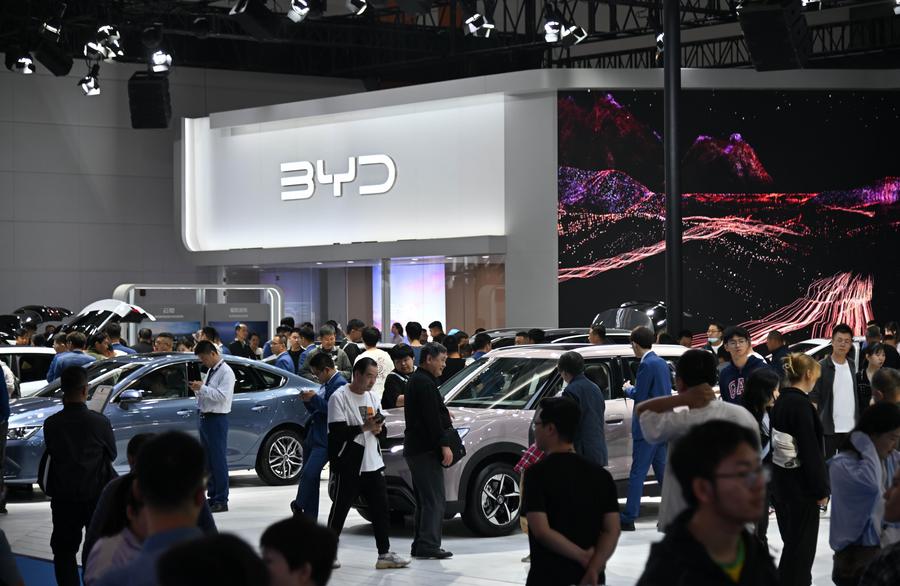Chinese EV maker eyes entry into Canada


China's leading electric vehicle maker BYD could bring lower-priced cars to the Canadian market, but will have to consider several factors, including the prospect of higher tariffs, an auto industry expert said.
A report by Automotive News Canada said BYD is planning to enter the Canadian car market to expand its presence in North America.
The company, based in Shenzhen, Guangdong province, already manufactures electric buses in North America.
Public documents filed in Ottawa in late July showed that lobbyists representing BYD registered with the federal and Ontario governments to "advise on matters related to the expected market entry of BYD into Canada for the sale of passenger electric vehicles, and the establishment of a new business, and the application of tariffs on EVs".
BYD also plans to build a plant in Mexico, which would take two to three years to open, its Americas head Stella Li told Reuters in May.
Its competitive pricing could give it an advantage in Canada, said John Holmes, professor emeritus at Queen's University in Ontario, who specializes in the political economy of the North American automobile industry.
"Unlike the consumer tax credits built into the US Inflation Reduction Act to encourage EV purchases, consumer incentives in Canada are much more modest and vary across provinces. Thus, the relatively high price of EVs currently sold in Canada has slowed the growth of that segment of the automotive market," Holmes told China Daily.
"Canadian tariffs on imported vehicles from outside the USMCA bloc (vehicles that meet the United States-Mexico-Canada Agreement rules of origin and content value) are relatively small. Therefore, imported Chinese-built EVs would enter at a significantly lower price point than EVs currently for sale in Canada."
The USMCA increased the requirement for North American-produced components in automobile manufacturing from 62.5 percent over its predecessor, the North American Free Trade Agreement, to 75 percent.
Public consultation
Ottawa opened a monthlong public consultation period on July 2 about possible increased tariffs on Chinese EVs, saying that allowing the vehicles "could lead to an exponential surge of imports that will adversely affect planned EV investments and the transformation of Canada's automotive sector".
But the results of the 30-day consultation conducted by Canada's finance minister have not been released.
Holmes said BYD would have to consider its prospects if a tariff or surtax similar to those imposed by the US on Chinese EVs, where they are 100 percent, was enacted.
It may take BYD some time to satisfy Canadian regulators on safety standards, Holmes added.
BYD will also face the challenge of establishing a dealership and service network in Canada, where the majority of the population resides close to the US border.
"There is also the challenge of range anxiety on the part of consumers, especially given the negative effect of very low winter temperatures on EV battery performance," Holmes said.
Agencies contributed to this story.

































